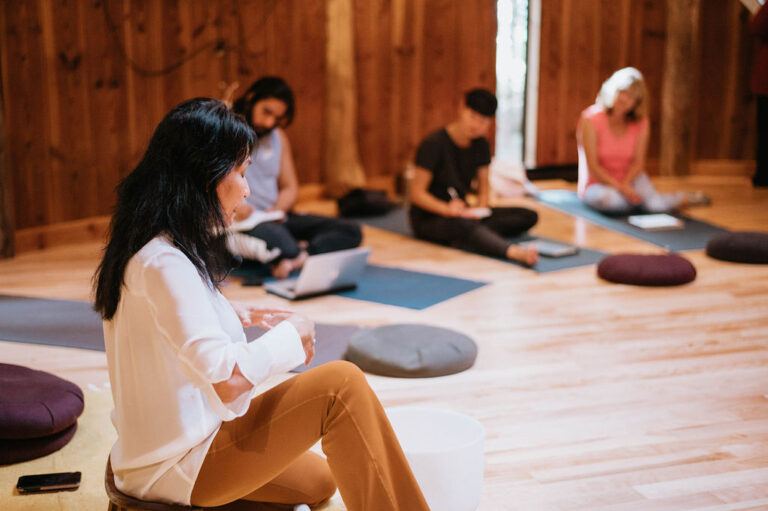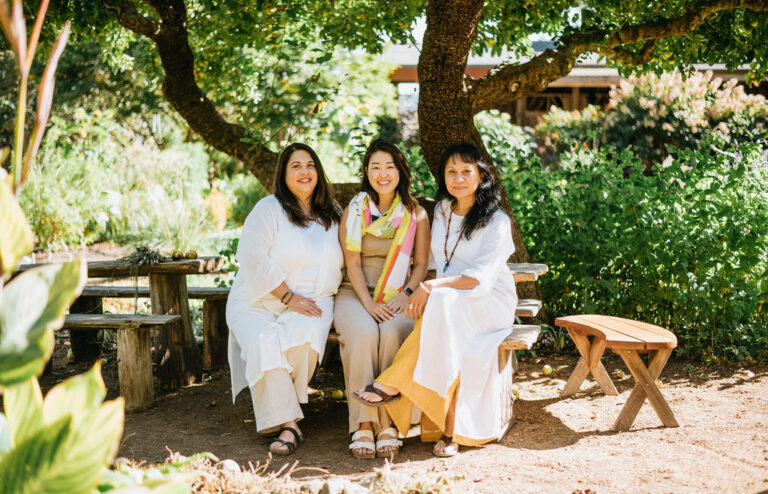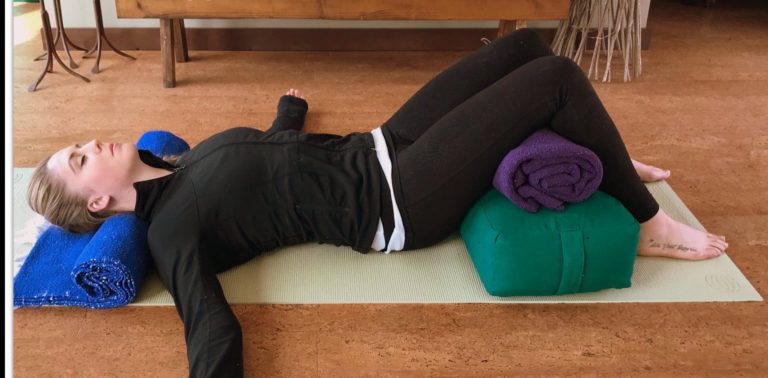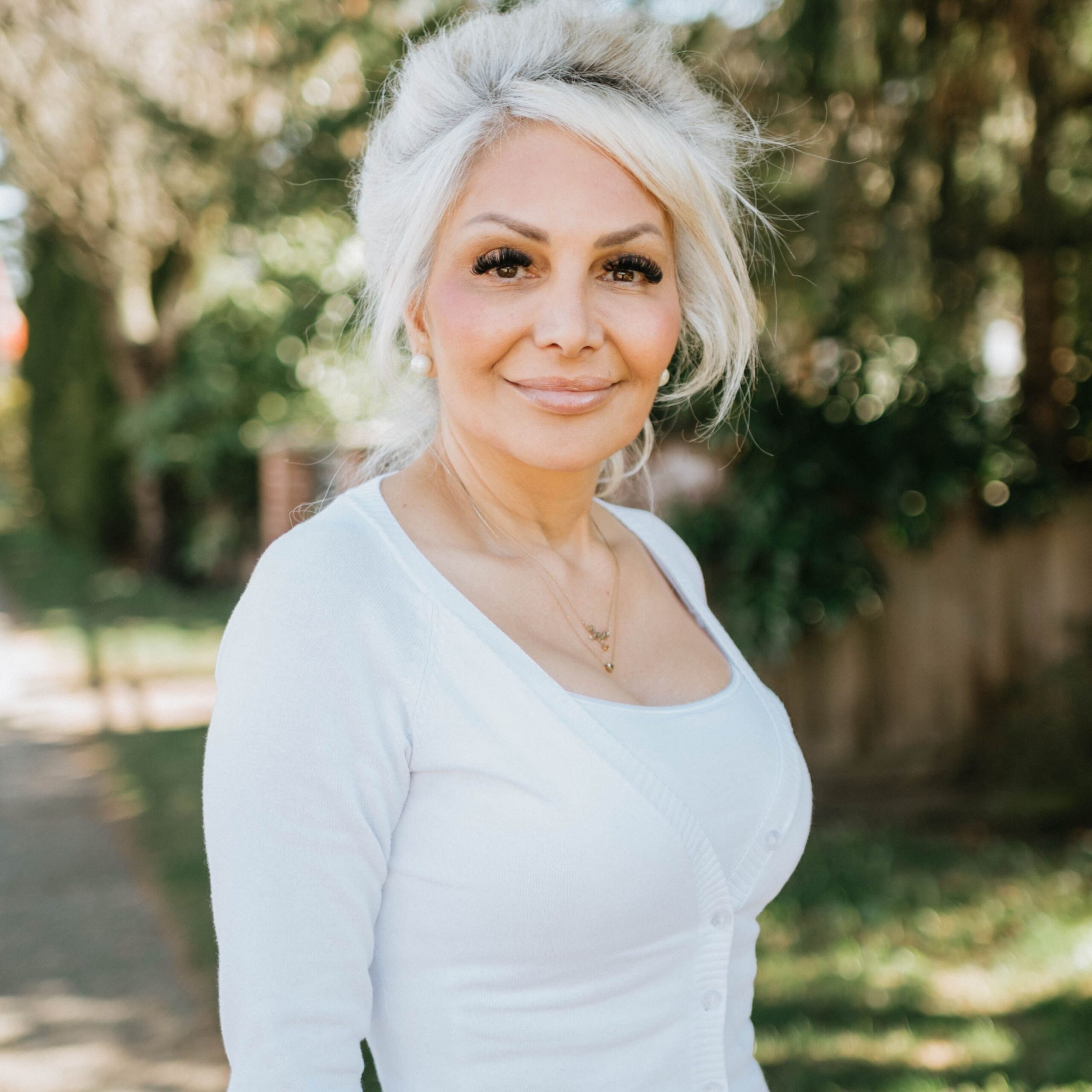Expression Through Felt Wisdom is What Heals
Integrative Somatic Studies Institute
Move + Breathe + Feel + Heal + LEARN
Integrative Somatic Therapy Practice
Trauma, Emotions, and the Body
INVESTMENT
$2,654.60 CAD (tax & fees included)

Level 2 Certificate
Level 2 Training Certificate comprises of 2 components:
- Component 1 is training in Integrative Somatic Therapy Practice.
- Component 2 is training in Integrative Yoga & Bodywork, View HERE
Both components can be taken in tandem with one another and are prerequisites to Level 3 Integrative Somatic Breathwork.
NOTE: Those with previous trainings in Yoga and Bodywork, view HERE for program timeline and EXEMPTIONS.
Component 1: Integrative Somatic Therapy Practice (ISTP)™
We heal when we feel safe in relationships, connected to our breath and congruent with body-mind-emotions. When we feel safe and connected to the body and breath, we develop the capacity to open to our vulnerabilities and emotional expressions to discover what is true to us. Expressions through felt wisdom is what heals. After completion of Fundamentals in Trauma Recovery (Level 1), we turn our intention to working with Felt Wisdom ~ Mind-Body-Emotion Self-Regulations for healing trauma.
Level 2 Certificate Training comprehensively integrates 7 core practices used in Integrative Somatic Therapy Practice for somatic processing and integration. Core Practices include Mindfulness, Yoga, View Here, Breathwork View Here, Movement, Integrative Bodywork (ITYM™ -200hr.) View Here, Resilience Enhancement, Ceremony, Sound, Somatic and Body-oriented processing designed to enhance the body’s own capacity to heal and reclaim hope. Students will learn to apply specialized skills to help clients connect to body sensations, tensions, and holding patterns developed over the years as self-protection. Learn how to support clients to cultivate moment-to-moment awareness of body, breath, and emotions to facilitate release of trauma stored in the body. The intent is to process and integrate unconscious memories and past experiences to encourage a kinder, more compassionate way of relating to SELF ~ body, mind and soul.
A 6-month training consisting of online Course Study with 20 modules designed to engage the multimodal adult learner. In addition to the Course Study, a 4-day skills-based training that can be completed all online or as a hybrid ~ 2 days online and 2 days in person. is offered both online and in person to accommodate different learning needs. Students may choose “Option A” to attend 4-days skills training on-line OR “Option B” to attend 2 days on-line and 2 days in person in Vancouver, British Columbia, Canada. The 4-day skills training are offered in January, March, July, & October (Winter-Spring, Summer, and Fall Cohort).
View Course Content, View HERE. View Training SCHEDULES View HERE. For program timeline & exemptions, View HERE
4-DAYS SKILLS-BASED TRAINING OPTIONS:
- 4-Day Online Live Webinar (Option A)
- 2 Day Online Live Webinar + 2-day in-person (Option B), View HERE
- a minimum of 25 practicum sessions (1.5hr.to 2hr/session) of documented practice*.
- Group Clinical Supervision***. Total supervision fee $600.00 CAD (not included in training fee),
- submission of one video recorded practicum session for review by supervisor. Fee is $150 (not included in training fee).
*Documented practice sessions can be obtained via 3 options:
- Within your training cohort (training group)
- With your own clients.
*** Group Clinical Supervision:
On-line Group Clinical Supervision is offered to provide students with an opportunity to consult, gain feedback and support during your 25 practice sessions within a group format to deepen learning.
GROUP SUPERVISIONS includes a Study Group with 6 topics for discussions to reinforce skills. Study Group Topics include:
- Beginning your first ISTP session: Intake, assessments, informed consent, session duration/rate, liability (professional) insurance.
- Ethical Issues in Somatic Psychotherapy: Dual & multiple relationships, documentations, using touch, adequate supervision.
- Navigating internal/external resources and activation. When to stay with the resources & went to move through activation
- Exercises to restore Social Engagement. From stage 2 (charge) to stage 1 (relax): RARI model. What to do when client is activated or overactivated? How to distinguish between integrative versus eclectic practice in an ISTP session.
- Understanding and working with resistance. Working with transference & countertransference.
- Inner Child or Shadow work in an Integrative Somatic Therapy Practice.

Level 2 & 3 Training Faculty Members: Ana Ferarri, Sun Lee & Ratha Chek
LEARNING OBJECTIVES
- Describe the rationale and practice guidelines for applying mindfulness, breathwork, resourcing, restorative postures, touch, and music in trauma recovery
- Explain how the 7 practice elements of ISTP are used for somatic processing and integration
- Apply 12 supported postures to engage in felt-sense through establishing safety and stability in the body
- Learn the art of invitational language and how to engage the body through various supported postures
- Utilize various props to support and release muscular tension/pain held in the physical body
- Understand 3 fundamentals of breathwork and apply techniques to mediate resilience in sympathetic and parasympathetic nervous systems
- Identify and apply key points in trauma work
- Understand the application of an ISTP model in relations to “best practice” model in trauma recovery
- Facilitate moment-to-moment awareness of body sensations, breath, emotional energy and thought to identify and integrate traumatic memories/experiences
- Learn to support felt-sense experiences (felt wisdom) through tracking physical sensations and emotional charge during an ISTP™ Session
- Learn to develop a counsellor’s practice of connectedness to one’s own felt wisdom to avoid absorbing client’s energy and emotional charge
- Complete 20 online self-study course modules
- Participate in a 4-day experiential skills-based practice
- Complete minimum 25 documented practicum sessions*
- Participate in a minimum of 5 online clinical group supervisions*** (total fee $600 CAD).
- Submit one video recording of a practice session for feedback & support (fee $150).
- Complete the 200-Hour Dual-Certification Bodywork: Integrative Restorative Yoga Teacher (IRYT) and Integrative Thai Yoga Massage (ITYM), Click Here
- Sign a training & license agreement
- Refer to yourself as ISTP™ Certified Therapist or Practitioner
- Register with Yoga Alliance, Click Here as a 200-hr. Registered Yoga Teacher
- Register with the National Health Practitioners of Canada, Click Here for 200-HR. Thai Yoga Massage Practitioner OR with Namasta, Click Here for 200-HR Bodywork Practitioner.
- Register for Level 3: Integrative Somatic Breathwork
- Work towards becoming a certified Integrative Somatic Breathwork Practitioner
NOTE: Students may refer themselves as trained in ISTP with completion of component 1 only; without component 2.
PLEASE NOTE: To become certified in ISTP, students are required to complete BOTH components in level 2 training. While some of our students bring experiences in Yoga or bodywork, our Yoga and Bodywork dual certifications training are specifically designed to complement Somatic Psychotherapy as best practice.
In level 2, We learn to apply Supported Postures, Bodywork and breathing techniques to facilitate attunement to the body for somatic processing and integration. Facilitating safe postures with conscious breathing, allow the breath to flow to different areas of the body where trauma is stored. When we create an opportunity for the body to move safely between postures, breath flows through the body to allow unconscious memories and repressed emotions to percolate and be released from the body. Breath moves energy and emotions are energy-in-motion.

Illness is thought to be the result of blocked energy. When our natural state of ease is blocked, we develop disease. Postures and breathing practices release blockages so that vital energy can flow freely, and healthy functioning can be restored
Chinese Medicine Tweet
Emotions follow body postures and physical holding patterns. Releasing physical holding patterns changes one's mental patterns as well. Change is experienced on all levels. Thoughts and emotions manifest in the body and through physical releases using restorative yoga postures, we have the potential for deep emotional releases and restructuring of mental patterns as well. New connections are created in the mind and body so that patterns of tension are negatively (literally our ruts) are replaced by new groves of relaxation and positivity.

Embodiment is the art of being in the present in the body as we experience life. In our trainings, embodiment is the practice of moment-to-moment process by which participants allow awareness to enhance the flow of sensations, feelings, thoughts, images and energies through their bodily selves. We are born into bodies that travel fluidly through an infinite range of movement and feeling. Although over time, through physical and/or emotional injuries, cultural conditionings, age, and sedentary habits, our movement expression gets narrower and narrower. We forget the physical freedom we once enjoyed,
To be embodied is:
- To be aware and awake to the sensations in our physical body, the ebb and flow of our emotions, and the movements of our mind
- To be present in our life, right here and now
- To allow life force to move through our bodies in ways both familiar and unpredictable
- To live and dance with the universal spirit, expressed in the world through our soulful, one-of-a-kind self
Trauma shatters one's sense of trust and safety. The wisdom of Yoga empowers individuals towards a renewed sense of hope and trust in self that is worthy of love & abilities. Yoga is the heartbeat of Integrative Somatic Therapy Practice. Yoga creates an opportunity for individuals to gain control; allowing access to body sensations and felt wisdom – “the unspoken voice”. Yoga skills used in ISTP is a truly life-empowering spiritual practice.
Ratha Chek Tweet
Component 2: Integrative Yoga & Bodywork
This is a 200-hr. dual certification training in Yoga (IRYT)™ & Bodywork (ITYM)™ for Integrative Somatic Therapy Practice. Integrative Restorative Yoga Teach (IRYT)™ and Integrative Thai Yoga Massage (ITYM)™ are specifically designed to enhance Somatic Psychotherapy for best practice in trauma recovery. For the rational on the use of touch and bodywork in Somatic Therapy, Click HERE.
NOTE: For those with previous trainings in Yoga and Bodywork who wish to apply for exemptions to component 2, Click HERE.
